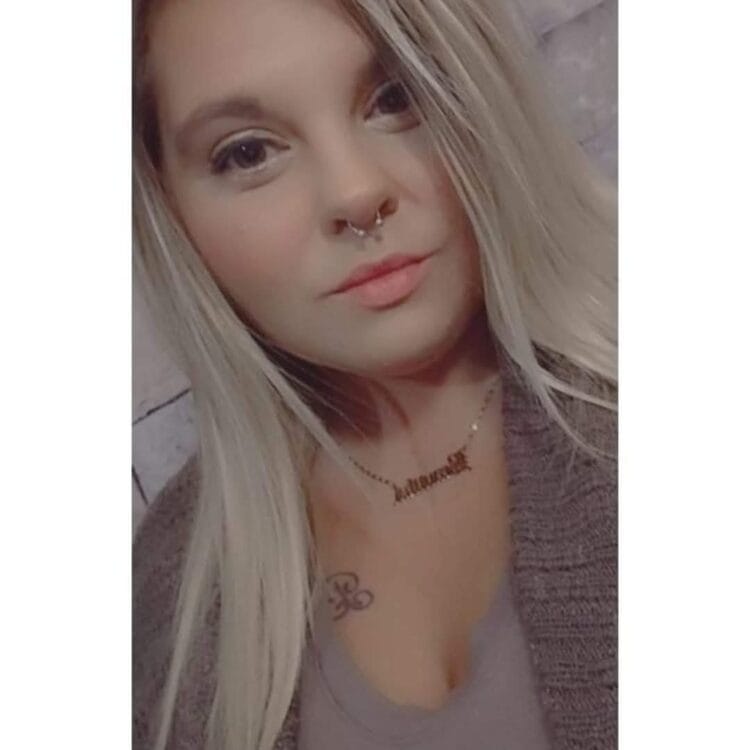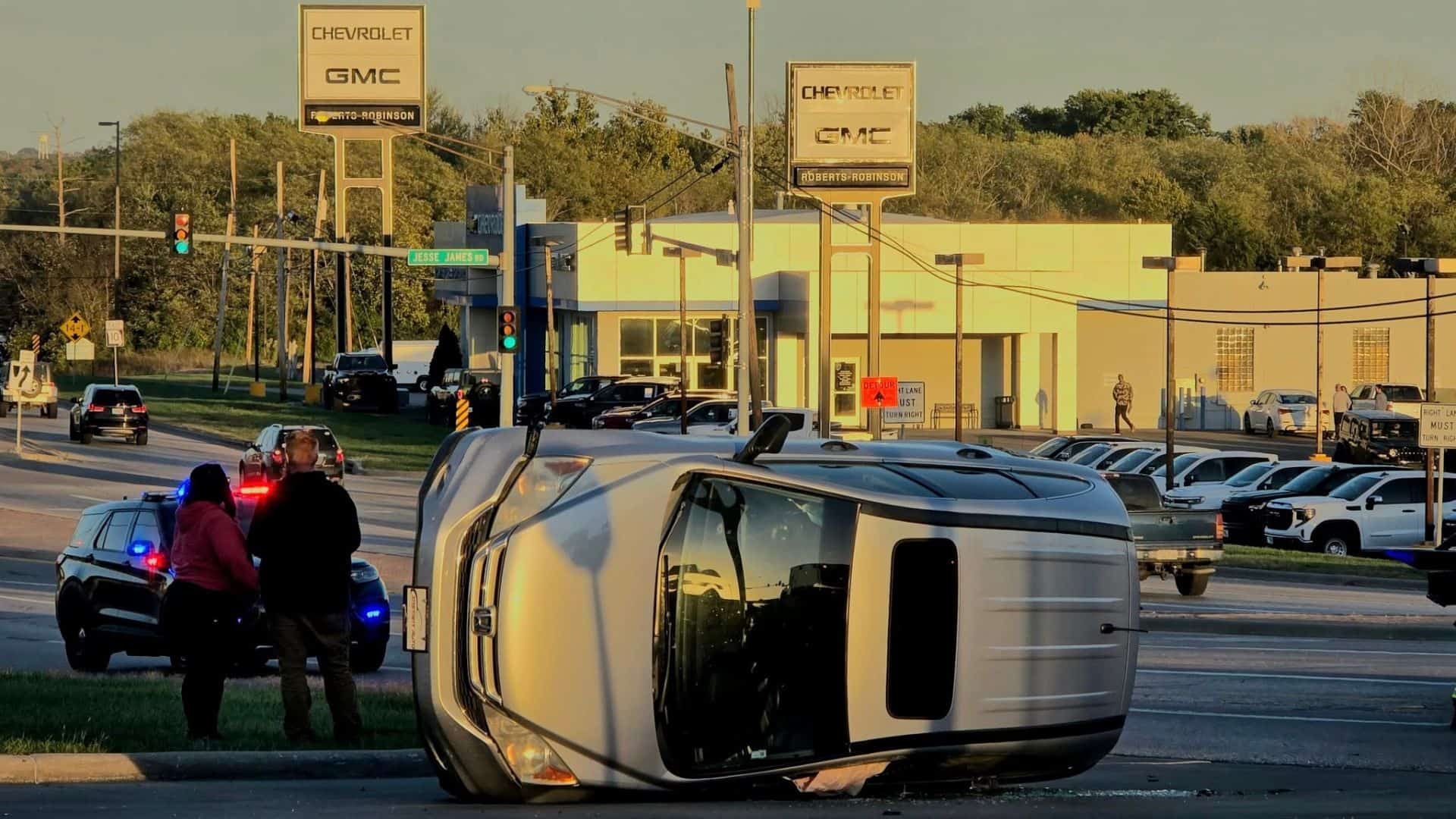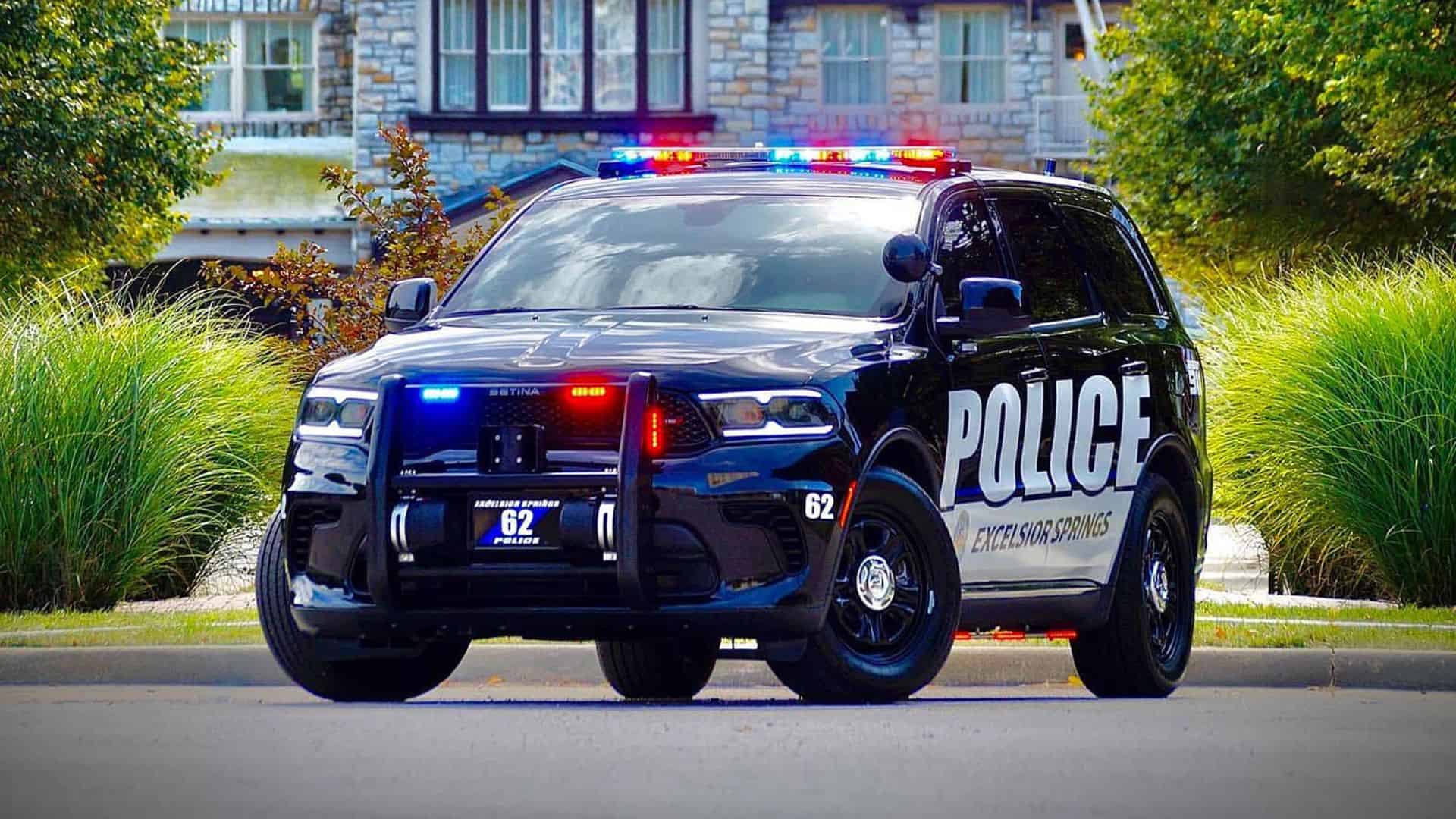
Excelsior Springs, Mo. (Dec. 15, 2024) – Persevering through addiction, Christina Richardson, a past resident of Excelsior Springs, now raises awareness surrounding addiction and the hospital-initiated substance use initiative, Engaging Patients in Care Coordination (EPICC) that helped change her life.
Christina, now a Sugar Creek resident, explained her experience with addiction began in high school before dropping out and receiving her general education diploma through the Sedalia State Fair Community College.
When she fell into substance use, “it started with the people I was around and circumstances at home,” she said. “I started using in 2011 and didn’t stop until 2022.”
When Christina was just fourteen, her father passed away, forcing her to take on adult responsibilities and help her mother care for her two younger siblings, but her grief led her to depression. Meanwhile, her older siblings went to parties every weekend. She said at the time, she thought they were cool. But now, looking back, she admitted it was probably just their way of numbing the pain of their father’s death.
Although Christina dealt with struggles at home, she was a great student involved with the Excelsior Springs Area Career Center and worked at a local fast food restaurant. But she also liked to come and go as she pleased.
“I was ripping and running with people who were using,” she noted. “I didn’t want to do anything else, and I wanted to be with those people all of the time, and school wasn’t fitting into my schedule.”
She explained it was around this time when she started using substances. Christina thought she had her life figured out, coasting by on $5 a day for gas, a pack of cigarettes, and food stamps. But when she ended up pregnant, she began to realize that substance abuse was not the answer.
Now sober and pregnant, she had her child, but just four months after giving birth, she wanted to lose the weight she gained.
“I thought I could lose weight if I started using again, and so I did,” she said. “Then I lost everything, quickly: my kids, my apartment, and my vehicle.”
During this time in her life, she didn’t have much support from her family due to the choices she made in her past, and she said they were tired of her antics. One substance turned into another, and she began using Fentanyl.
Christina began to experience a sickness associated with withdrawal symptoms. She admitted she was getting sicker more than she was getting high, and it scared her that she would overdose. In the past, she had witnessed friends overdose in front of her, and nobody around would know what to do.
“I went to the hospital, sick with withdrawals in North Kansas City, and a social worker referred me to EPICC,” she said. “It was 2 a.m., and I called the number she gave me, and they immediately called back asking where I was going to be later in the morning and told me that they would come get me.”
Christina thought it was too good to be true but told the woman on the phone she would be at a trap house (an empty home where drugs are sold and consumed). Sure enough, and to Christina’s surprise, the woman she spoke to was knocking on the door at 8:30 a.m., taking her to get suboxone and to receive help. She thought that God had a hand in helping her that morning because the woman, an anonymous EPICC representative referred to as a coach, helped her without question.
Although Christina received help that day, she said it didn’t stop her from using until her situation escalated as she ran into legal trouble and was in and out of jail as her life spiraled downward.
“I had nowhere to live; I was stealing and just doing what I had to survive and to support my habit,” she said. “I was on probation, and an officer told me, if I didn’t go to treatment, that I was going back to jail. After the fiftieth time the officer told me that, I finally thought I should do something.”
Christina spent time in rehab facilities and participating in inpatient treatments. Some she completed, and others she left early. Finally, the realization set in that she didn’t have a home to go back to after rehab, and she decided to try a sober living facility. However, the anonymous woman from EPICC never lost contact with Christina and helped her every step of the way.
“I never felt rushed or pressured; she was just there to help me with whatever goals I had at the time,” she said. “Whether it was making sure I had Narcan or just what I needed to get through the day, she was there. I was never told I had to do anything to be her client, and for that, I was very grateful.”
The representative from EPICC helped Christina get connected to inpatient programs, helped her with transportation, took her to various treatment centers, and helped with her discharge paperwork while developing an aftercare plan.
Through the recovery process, EPICC guided Christina through her treatment, ensuring she was supported every step of the way through group therapy, learning self-care, and helping her obtain health insurance and other medications if necessary. Leading Christina down a path of recovery and healing.
Now, two years sober, Christina is employed with EPICC, helping others who are in the same situation she was in. She admitted when taking on her role with EPICC, she was hesitant at first but had witnessed the greatness the program brought to the area, helping those in need of their services. She wanted to be a part of the solution, aiding people through addiction recovery.
As for those seeking help, Christina noted EPICC is for anyone 18 years or older willing to receive help with drug or alcohol addictions. Those seeking help through EPICC do not require health insurance. If someone needs their services, the program will aid anyone from any area in Missouri’s southwestern, eastern, and western regions.
“If you think that because you live in a rural area, that you’re not eligible or that you can’t reach help because of barriers, just make the call. There is someone here who is available immediately to be at your side, advocate for you, and help you meet your goals,” Christina said.
For those needing assistance with drug or alcohol addiction or experiencing a substance use crisis call the EPICC referral line at (816) 412-9417. When a call is received, a Certified Peer Specialist responds within the hour, providing individual-centered care and support. For more information regarding EPICC visit their website at https://mocep.org/

If you appreciate the value our local journalism brings to the community, please consider making a recurring contribution to the Excelsior Citizen!










